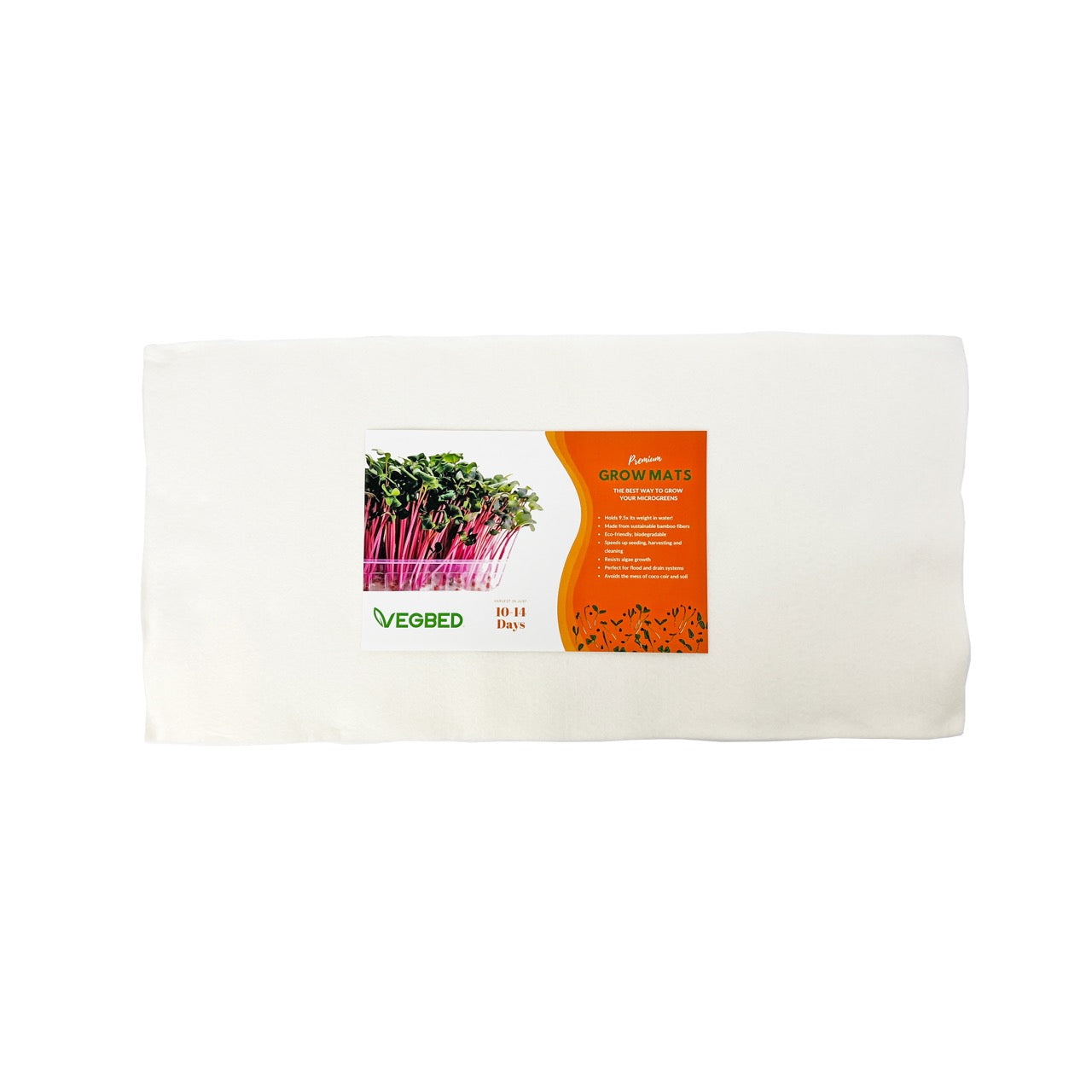The recent news about the shrinking Colorado River has undoubtedly caused concern. This vital waterway plays a critical role in irrigating millions of acres of farmland across the American West, and its decline poses a significant threat to our nation's food security.
The New York Post article highlights the potential consequences of this water scarcity, revealing a harsh reality for farmers who rely on the Colorado River for irrigation—reduced water allocations could lead to crop failures and disruptions in the food supply chain.
But amidst this challenge, there's a glimmer of hope. Innovative solutions like indoor and vertical farming offer a path forward, ensuring a more resilient and sustainable agricultural future. Here at Vegbed, we believe these advancements can play a crucial role in mitigating the impact of water scarcity on American agriculture.
Understanding the Impact on U.S. Agriculture
The Colorado River Basin spans seven U.S. states and provides water to approximately 40 million people. It irrigates millions of acres of farmland, enabling the production of a significant portion of the nation's fruits, vegetables, and livestock feed.
However, prolonged droughts, climate change, and over-allocation of water resources have led to a dramatic reduction in the river's flow. As a result, farmers are grappling with water shortages that threaten their livelihoods and the nation's food supply.
Economic Implications: The agricultural sector, a major contributor to the U.S. economy, is particularly vulnerable. Reduced water availability can lead to decreased crop yields, higher production costs, and increased food prices. This ripple effect can impact consumers nationwide, leading to food insecurity and economic instability.
Environmental Concerns: The shrinking Colorado River also poses environmental challenges. Reduced water flow affects aquatic ecosystems, wildlife habitats, and biodiversity. Moreover, traditional farming practices that rely heavily on water exacerbate these issues, highlighting the need for more sustainable approaches.

How Indoor and Vertical Farming Can Help
In the face of such challenges, indoor and vertical farming emerge as viable solutions. These innovative practices offer several benefits that can help address the water scarcity crisis:
- Water Efficiency: Vertical and indoor farms use significantly less water than traditional agriculture. Hydroponic systems, for instance, recycle water, reducing consumption by up to 90%. This efficiency is crucial in areas facing water shortages.
- Space Optimization: By growing crops vertically, these farms maximize space and can produce high yields in urban environments. This approach reduces the need for vast tracts of arable land and brings food production closer to consumers.
- Climate Control: Indoor farming provides a controlled environment, shielding crops from extreme weather conditions and ensuring consistent production. This reliability is especially important as climate change leads to more frequent and severe weather events.
- Sustainable Practices: These farming methods eliminate the need for pesticides and herbicides, promoting healthier produce and reducing environmental impact. Moreover, they can be integrated with renewable energy sources, further enhancing their sustainability.

Vegbed's Role in Promoting Sustainable Solutions
At Vegbed, we believe in the power of innovation to transform agriculture. Our bamboo grow mats are designed to support hydroponic and microgreen farming, offering a sustainable alternative to traditional soil-based methods. Vegbed mats help farmers conserve water and resources while maximizing yields by providing a clean, efficient growing medium.
Educating and Empowering Farmers: As part of our commitment to sustainability, we offer educational resources and support to farmers looking to adopt hydroponic and vertical farming techniques. By empowering growers with the knowledge and tools they need, we aim to foster a more resilient agricultural sector.
Community Engagement: We actively engage with local communities and agricultural organizations to promote awareness of sustainable farming practices. Through partnerships and collaborations, we strive to build a network of like-minded individuals dedicated to preserving our planet's resources.
The Future of Agriculture in a Changing Climate
The shrinking Colorado River serves as a wake-up call for the agricultural sector and underscores the urgency of adopting sustainable practices. As traditional farming faces increasing challenges, the role of indoor and vertical farming will become more prominent. By embracing these innovative solutions, we can build a more resilient food system capable of withstanding the impacts of climate change.
Policy and Investment: To accelerate the transition to sustainable agriculture, policymakers and investors must support research and development in vertical and hydroponic farming. Incentives and funding can drive innovation and make these practices more accessible to farmers nationwide.
Consumer Awareness: As consumers, we play a crucial role in shaping the future of agriculture. By choosing sustainably grown produce and supporting local farmers, we can drive demand for environmentally friendly practices and contribute to a healthier planet.
Conclusion
The challenges posed by the shrinking Colorado River are significant, but they also present an opportunity to rethink and reshape the agricultural landscape. By adopting sustainable practices like vertical farming and hydroponics, we can mitigate the impact of water scarcity and build a more resilient food system.
At Vegbed, we are committed to taking charge of sustainable agriculture. Through innovation, education, and community engagement, we strive to create a future where food production is both environmentally and economically sustainable. Together, we can ensure a secure and prosperous future for future generations.
For more insights and resources on sustainable agriculture, visit Vegbed's website and join us in our mission to revolutionize farming.



